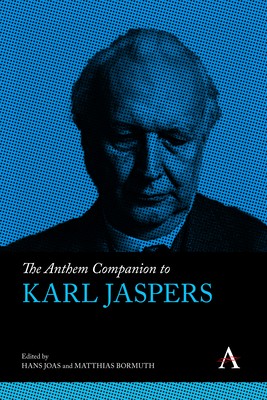
- We will send in 10–14 business days.
- Publisher: Anthem Press
- ISBN-10: 1839992867
- ISBN-13: 9781839992865
- Format: 15.2 x 22.9 x 1.8 cm, kieti viršeliai
- Language: English
- SAVE -10% with code: EXTRA
The Anthem Companion to Karl Jaspers (e-book) (used book) | bookbook.eu
Reviews
Description
This collection of articles by an international group of leading experts has its special focus on the relevance of Karl Jaspers's philosophy for the social sciences. It also includes classical evaluations of Jaspers's thinking by renowned authors Talcott Parsons and Jürgen Habermas. Several chapters are devoted to the relationship between Jaspers and his teacher (Max Weber), his famous student (Hannah Arendt) and crucial figures in his intellectual world (Wilhelm Dilthey, Georg Simmel). Others deal with his relevance for disciplines from psychiatry to the study of religion and the historico-sociological research about the Axial Age, a term coined by Jaspers. In his introduction, editor Hans Joas tries to systematise Jaspers's relevance for the contemporary social sciences and to explain why Parsons had called him a 'social scientist's philosopher'.
The contributions to this volume deal, on one hand, with thematic areas for which Jaspers's work has been crucial: the Axial Age debate, a non-theological and non-reductive theory of religion; the understanding of psychoanalysis and psychiatry; and the possibilities of a diagnosis of one's own age. On the other hand, they put Jaspers in contrast with Max Weber, Wilhelm Dilthey, Georg Simmel and Hannah Arendt. The volume also contains important chapters by Talcott Parsons, who called Jaspers 'a social scientist's philosopher', and by Jürgen Habermas, who contrasts his own views on the role of communicative ethics in an age of religious pluralism with those of Jaspers. The book promises to become an indispensable source in the re-evaluation of Jaspers's thinking in the years to come.EXTRA 10 % discount with code: EXTRA
The promotion ends in 22d.18:50:29
The discount code is valid when purchasing from 10 €. Discounts do not stack.
- Publisher: Anthem Press
- ISBN-10: 1839992867
- ISBN-13: 9781839992865
- Format: 15.2 x 22.9 x 1.8 cm, kieti viršeliai
- Language: English English
This collection of articles by an international group of leading experts has its special focus on the relevance of Karl Jaspers's philosophy for the social sciences. It also includes classical evaluations of Jaspers's thinking by renowned authors Talcott Parsons and Jürgen Habermas. Several chapters are devoted to the relationship between Jaspers and his teacher (Max Weber), his famous student (Hannah Arendt) and crucial figures in his intellectual world (Wilhelm Dilthey, Georg Simmel). Others deal with his relevance for disciplines from psychiatry to the study of religion and the historico-sociological research about the Axial Age, a term coined by Jaspers. In his introduction, editor Hans Joas tries to systematise Jaspers's relevance for the contemporary social sciences and to explain why Parsons had called him a 'social scientist's philosopher'.
The contributions to this volume deal, on one hand, with thematic areas for which Jaspers's work has been crucial: the Axial Age debate, a non-theological and non-reductive theory of religion; the understanding of psychoanalysis and psychiatry; and the possibilities of a diagnosis of one's own age. On the other hand, they put Jaspers in contrast with Max Weber, Wilhelm Dilthey, Georg Simmel and Hannah Arendt. The volume also contains important chapters by Talcott Parsons, who called Jaspers 'a social scientist's philosopher', and by Jürgen Habermas, who contrasts his own views on the role of communicative ethics in an age of religious pluralism with those of Jaspers. The book promises to become an indispensable source in the re-evaluation of Jaspers's thinking in the years to come.

Reviews